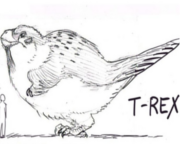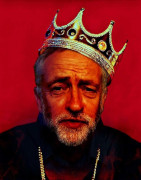|
Pornographic Memory posted:Maybe not the right thread to ask but now I'm wondering, has anybody ever cucked a king and had his boy take the throne without people realizing it until it was too late, Game of Thrones-style? Well according to Mel Gibson...
|
|
|
|

|
| # ? May 20, 2024 13:12 |
|
Chillyrabbit posted:Looking into the future how do you guys get your research material. Depends on what you mean about research. Many archives that aren't intensely guarded for political reasons are pretty chill in my experience. Hell most people who spend any time in archives have good pub-grade anecdotes about obviously unprepared, amateur shitshows that were somehow making life hell for llibrary / archive staff. If you want to get in and search for information on a particular topic you'd probably be amazed at how low the bar for admission can be. Really it's more about having the time and financial support to go to where the materials are, although in some fields digitization projects are helping with that a lot. Edit: obviously this is for normal papers etc. poo poo like national or cultural treasures generally require some level of vetting. You're not going to just walk in and get alone time with a copy of the bill of rights or a Gutenberg bible. Cyrano4747 fucked around with this message at 06:38 on Jul 7, 2014 |
|
|
|
FAUXTON posted:And the war of independence started with a couple cops being shot. I'm still confused, Mao was talking about the war from 1919-21 as an example of how to fight effectively against a more powerful nation, why does he need to bring up the complicated background and failed wars of centuries past if all he wants to say is 'footloose guerrilla columns and effective counter-intelligence, pretty good idea!'? I wouldn't overestimate the instability of Ireland over the previous centuries, if anything Ireland was far more peaceful in the modern era than people often realize (tons of poverty and a dreadful famine though!). The period between 1691 and 1798 is sometimes called 'the long peace' because there was almost a straight century between any worthwhile armed rebellion on the island, this was broken by the rebellion of 1798, which only lasted a few months. After that there were a few guerrilla groups operating under people like Michael Dwyer and Robert Emmet attempted another rebellion which ended up as the most violent pub crawl in Dublin's history and left around fifty people dead. By 1803 the island was pacified again and another long period of relative peace set in. Of course there were a few sporadic attempts to kickstart another rebellion, notable ones include the young Irelander rebellion of 1848 where it turned out people starving to death aren't the most enthusiastic warriors of national liberation, the Fenian uprising of 1867, which didn't go anywhere either (and was preceded by the utterly bizarre fenian raids in Canada by Irish veterans of the American civil war, also afterwards a botched attempt to blow up the walls of Clerkenwell prison and free some rebel prisoners killed 12 people and prompted outrage in Britain) and the dynamite campaign of the early 1880s where various targets were bombed in Britain but most of the deaths in the campaign were Fenians killed by their own bombs (1882 also saw the Phoenix Park murders of two prominent members of the British establishment). There were also lots of republican secret societies like the Ribbonmen and IRB who were involved in these uprisings and resistance against landlords (they also got into fights with unionist foes like the Orange order). None of the campaigns for armed rebellion against British authorities in Ireland for the century prior to 1916 were successful, popular or long lived. But Ireland, similar to everywhere else, did see unrest over social issues, particularly the tithe war of the 1830s and land war of the 1880s. there was violence, riots and acts of arson, sometimes it could get pretty hairy, such as the Carrickshock and Rathcormac massacres during the tithe war, but there was no sort of armed national uprising against the British and most of the activities consisted of civil disobedience and the use of the parliamentary process to achieve demands (the phrase 'boycott' originates from the land war). People like Daniel O'Connell and Charles Stewart Parnell had much more impact in 19th century Ireland than John Mitchel or John O'Leary. By 1914 the island looked like it was on the verge of war, but characterizing it as a war of liberation against the British wouldn't really be correct(again, home rule had been achieved through the parliamentary process!), it was more of a civil war between unionists and nationalists over Home Rule with the rebels technically being the Ulster Unionists since they were prepared to violently oppose the implementation of the home rule bill. khwarezm fucked around with this message at 10:33 on Jul 7, 2014 |
|
|
|
P-Mack posted:I've read Rot3k but honestly have no idea how much of it was made up, outside of the really obvious parts where brave warriors kill hundreds of the enemy single handedly. It's kind of interesting reading between the lines and I got the sneaking suspicion that Shu-han was more like glorified bandit fiefdom than the glowing way Liu Bei is portrayed in the novel. There's always an excuse made for why Liu Bei backstabbing an ally was really justified under Confucianism because he was being true to the real Han emperor, while everyone else who does the same thing is just an utter scumbag. Combine Shu were maybe not goodguys, this gif and the discussion about getting rid of terrible heirs: 
|
|
|
|
Pornographic Memory posted:Maybe not the right thread to ask but now I'm wondering, has anybody ever cucked a king and had his boy take the throne without people realizing it until it was too late, Game of Thrones-style? Catherine the Great, probably. Makes sense for her, like she'd want Peter III's genetic material anywhere near the throne. Edit: or anywhere else.
|
|
|
|
There were rumours that Louis XIV was not the son of Louis XIII but in all likelihood that was just malicious gossip to discredit Cardinal Mazarin who was accused of having an affair with the queen.
|
|
|
|
|
Pimpmust posted:Combine Shu were maybe not goodguys, this gif and the discussion about getting rid of terrible heirs: I'm pretty sure it's a running joke in China that the reason why Liu Shan was such a terrible ruler had something to do with this incident.
|
|
|
|
Holy poo poo, I only realized this when I posted that example of early modern handwriting. This is from a report of a fight between a Fendrich and a college student in Wittemberg in 1631. Witnesses are listed. One of them is Claus von Taubens, Fendrich. Claus von Taubens shows up again in the documents relating to that suicide I posted about last month. It's '54 and now he's an Oberst in Dresden. Congratulations, Claus! HEY GUNS fucked around with this message at 12:06 on Jul 7, 2014 |
|
|
|
ALL-PRO SEXMAN posted:Well according to Mel Gibson... Inaccurate as hell but given how Isabella turned out... (Although they do think her kids were Edward's.)
|
|
|
|
HEY GAL posted:Holy poo poo, I only realized this when I posted that example of early modern handwriting. This is from a report of a fight between a Fendrich and a college student in Wittemberg in 1631. Witnesses are listed. One of them is Claus von Taubens, Fendrich. Are you sure it's not Clomb von Tombaugh?
|
|
|
|
ALL-PRO SEXMAN posted:Are you sure it's not Clomb von Tombaugh? Edit: And you can tell that's a U because there's a little squiggle above it. All Us/Vs have a squiggle, all Ys have two dots, all Is have one dot. HEY GUNS fucked around with this message at 12:58 on Jul 7, 2014 |
|
|
|
khwarezm posted:I'm still confused, Mao was talking about the war from 1919-21 as an example of how to fight effectively against a more powerful nation, why does he need to bring up the complicated background and failed wars of centuries past if all he wants to say is 'footloose guerrilla columns and effective counter-intelligence, pretty good idea!'? The point I was making is that these items counted - the 1919 war wasn't fought in a vacuum and wouldn't have happened nor would it have been successful without all of the political process preceding it. The fact that it was irregular and had a low death toll is not what made it a successful war. The fact that it didn't result in a massive show of force by England to crush the uprising is unique, but maybe not unexpected given the proximity to WWI and the political legitimacy of the Republican movement. Which again plays into the "not a vacuum" point. Again, not what made it successful, since previous attempts to kick off a broad uprising were brutally put down. It's a single-cause fallacy at it's worst. There was a war, and Ireland was independent afterwards, but the war sure as hell wasn't the main factor. Unless Mao was making a statement strictly on the tactics, it's like saying WWI had no bearing on the birth of the Soviet Union.
|
|
|
|
FAUXTON posted:It's a single-cause fallacy at it's worst. There was a war, and Ireland was independent afterwards, but the war sure as hell wasn't the main factor. Unless Mao was making a statement strictly on the tactics, it's like saying WWI had no bearing on the birth of the Soviet Union. He was talking tactics, Mao was only interested in how the lessons from a successful guerilla war could apply to his own war, I highly doubt he gave a single poo poo about Ireland except that Britain was getting hosed over.
|
|
|
|
Chillyrabbit posted:Looking into the future how do you guys get your research material. I use old photocopies and buy things off of amazon, or reference my old essays and dissertations. I have something of an advantage because medieval sources (well, the ones I care about) are commonly available for fairly cheap (Orderic Vitalis's Historia Ecclesiastica being the most crippling exception). I also live near the Library of Congress. Well, near on a national scale. Rodrigo Diaz fucked around with this message at 16:33 on Jul 7, 2014 |
|
|
|
Haha, sorry, I meant a different Three Kingdoms. Probably should have made that clearer!
|
|
|
|
Rabhadh posted:He was talking tactics, Mao was only interested in how the lessons from a successful guerilla war could apply to his own war, I highly doubt he gave a single poo poo about Ireland except that Britain was getting hosed over. Oh. I was thinking he was looking at it in terms of a political struggle, overthrowing the *-ist oppressors and drawing the public to your banner with the virtue of your cause.
|
|
|
|
Is there a concise explanation as to why ancient countries could raise huge armies while the medieval period seemed to struggle to raise a couple thousand soldiers? I imagine at least some of the explanation is propaganda and lack of counting skills.
|
|
|
|
Torpor posted:Is there a concise explanation as to why ancient countries could raise huge armies while the medieval period seemed to struggle to raise a couple thousand soldiers? Do you have any examples of ancient countries and huge armies?
|
|
|
|
Slim Jim Pickens posted:Do you have any examples of ancient countries and huge armies? Roman Legions come to mind. "They are Legion" is still used to describe an army that is really, really big, and Rome had, what, 30 of it?
|
|
|
|
Slim Jim Pickens posted:Do you have any examples of ancient countries and huge armies? Rome raised at least 40000 men for Cannae (up to 90000 by some counts) lost them all, then called up enough legions to keep fighting. Henry had maybe 10000 at Agincourt. China's got scary huge numbers throughout history so I think he's referring to European conflicts.
|
|
|
|
Slim Jim Pickens posted:Do you have any examples of ancient countries and huge armies? I'm confused by this question, are you implying that there were no massive armies in antiquity? ArchangeI posted:Roman Legions come to mind. "They are Legion" is still used to describe an army that is really, really big, and Rome had, what, 30 of it? A Legion was roughly 6000 men each, with multiple Legions being used to make up larger armies. They had over 100 legions going during the Civil Wars, and Augustus dropped it down to like 50 or something. WoodrowSkillson fucked around with this message at 18:11 on Jul 7, 2014 |
|
|
|
Slim Jim Pickens posted:Do you have any examples of ancient countries and huge armies? The Persians under the Achaemenids. you'll recall an often spoken of last stand that involves them and their huge armies.
|
|
|
|
Rome, Persia, and China are way more on top of things, administratively speaking, than any medieval Western state I can think of.
|
|
|
|
the JJ posted:China's got scary huge numbers throughout history so I think he's referring to European conflicts. How accurate are the numbers for China? They always seemed patently ridiculous but nobody ever seems to question them. edit: like wikipedia gives the strength of the Jin and Song dynasties as they fought the Mongols as more than a million each.  The largest armies Eastern Europe could muster were less than a hundred thousand strong. The largest armies Eastern Europe could muster were less than a hundred thousand strong.
Koramei fucked around with this message at 18:23 on Jul 7, 2014 |
|
|
|
Koramei posted:How accurate are the numbers for China? They always seemed patently ridiculous but nobody ever seems to question them. Remember that China was basically the entirety of Europe, except as (approximately) one single huge country. So I think it's easily plausible.
|
|
|
|
HEY GAL posted:Rome, Persia, and China are way more on top of things, administratively speaking, than any medieval Western state I can think of. Since it hasn't been mentioned in a while, Laszlo Montgomery's History of China podcast is a great way of seeing how hardcore the ancient Chinese were at the whole "civil service" thing.
|
|
|
|
Slim Jim Pickens posted:Do you have any examples of ancient countries and huge armies? Depends on what you count as ancient, but the Aztec fighting force was several hundred thousand. You'd never know it though, because they'd fight multi-front wars of attrition that spread their armies thin. Smoking Crow fucked around with this message at 18:54 on Jul 7, 2014 |
|
|
|
Koramei posted:How accurate are the numbers for China? They always seemed patently ridiculous but nobody ever seems to question them. Yeah, united China is sitting on a huge chunk of turf and a lot of that is really good, high density agriland. With a functional bureaucracy and the leadership to mobilize they could do some crazy things. Smoking Crow posted:Depends on what you count as ancient, but the Aztec fighting force was several hundred thousand. You'd never know it though, because they'd fight multi-front wars of attrition that spread their armies thin. To be fair, a fair chunk of that is warriors provided by conquered altepetls as well as the actual Triple Alliance. the JJ fucked around with this message at 19:00 on Jul 7, 2014 |
|
|
|
Sorry to cut into numbers chat, but I just finished Lords of the Sea and just had to recommend it to the thread. It covers the confluence of Athenian power as it was tied to their naval force and provides a really accessible, but not exhaustively detailed survey of ~500-322BC and the Athenian goings-on in that period. It has a really great scope of history and the way the author blends the military with domestic history just made for a really smooth read. Powered through it in 4 hours, so figured I would ask if any of you academics could recommend something with more substance I could pick up next. Ideally, I'd be looking for things that cover Classical period maritime history and technology- love me some triremes. That said, did any ancient cultures really "get" the sail? From a lot of what I have read, it seems galleys and heavier transports did exist, but never really out performed oar-driven vessels. Was this something to do with the conditions in the Mediterranean, or could it be seen in the Black Sea and other areas ? Amazon page for those interested: http://www.amazon.com/Lords-Sea-Story-Athenian-Democracy/dp/0143117688/ref=sr_1_1?ie=UTF8&qid=1404756929&sr=8-1&keywords=Lords+of+the+Sea Edit: poo poo, had wrong window open, do y'all think I should move this to the Ancient History thread, or is it cool here? Immanentized fucked around with this message at 19:43 on Jul 7, 2014 |
|
|
|
HEY GAL posted:Rome, Persia, and China are way more on top of things, administratively speaking, than any medieval Western state I can think of. Are there any books that track the economy of Europe from the Roman times through the medieval period? I suspect that probably is a lot of it. Also is there a unit of measure that could be used as a measure of purchasing power over time? Like the Big Mac index, but throughout history.
|
|
|
|
Torpor posted:Are there any books that track the economy of Europe from the Roman times through the medieval period? I suspect that probably is a lot of it. Not exactly what you're looking for but you might be interested in reading about Diocletian's edict on maximum prices for a snapshot of a 3rd-4th century economy.
|
|
|
|
the JJ posted:To be fair, a fair chunk of that is warriors provided by conquered altepetls as well as the actual Triple Alliance. The same could be said of the Persians since most of the Persian sailors at Salamis were Ionian Greeks.
|
|
|
|
Smoking Crow posted:The same could be said of the Persians since most of the Persian sailors at Salamis were Ionian Greeks.
|
|
|
|
Smoking Crow posted:The same could be said of the Persians since most of the Persian sailors at Salamis were Ionian Greeks. Sure, but there's some ambiguity in the term 'Aztec fighting force.' Is it the fighting force that is controlled by the Aztec empire or the 'ethnically' Aztec soldiers? (Hint, none, because Aztec is a pretty useless term.) Immanentized posted:Sorry to cut into numbers chat, but I just finished Lords of the Sea and just had to recommend it to the thread. Comedy answer: History of the Peloponnesian War into Hellenika. As for sails, they were 'got' but their application in warfare was pretty much nil at the time. Absent a way to reach out over long distances (cannons, basically) you're going to have to get in close. That means either castle boats (Japan, some Chinese brown water examples, some Roman examples) or rammers (most Med stuff.) That means running out the sweeps and dancing a bit even into the wind. Sails were for outside of battle work. I'm pretty sure the rowers just idled when not actually needed, they were tooled more for the sprint of the final ram not the marathon of, say, rowing all the way from Sicily to Alexandria.
|
|
|
|
the JJ posted:Sure, but there's some ambiguity in the term 'Aztec fighting force.' Is it the fighting force that is controlled by the Aztec empire or the 'ethnically' Aztec soldiers? If I was going to specify the "ethnically Aztec" warriors, I would say Mexica. I know that Aztec isn't the name of the actual place, but that's what laymen know and I'm trying to be gracious. Speaking of, do you consider troops called up from the various S.S.R.'s as being strictly Tatar, Siberian or Manchurian or do you consider them Soviet?
|
|
|
|
Smoking Crow posted:Speaking of, do you consider troops called up from the various S.S.R.'s as being strictly Tatar, Siberian or Manchurian or do you consider them Soviet? Probably depends on what era you're talking about. I'm a lot more familiar with the Latvian case than most of the others, but due to both deportation policy and settlement of ethnic Russians you're looking at very different things if you talk about a "Latvian" formation in the WW2 Red Army vs. a "Latvian" formation in the 1950s Red Army vs. a "Latvian" formation in the 1980s Red Army. Then again, the same thing could be said for "Latvians" period. Ethnicity vs. nationality in the SSRs is all kind of hosed up.
|
|
|
|
Torpor posted:Also is there a unit of measure that could be used as a measure of purchasing power over time? Like the Big Mac index, but throughout history. I've looked into this a bit, and it's hard to quantify anything as a measure of purchasing power. When dealing with economies that are too different to put a dollar value on everything, the best unit I've seen is hours of skilled labour. So in the above link we see that a carpenter, shipwright, or blacksmith would all be paid 50 denarii communes a day. The measures are all rather unfamiliar, but I can translate them to say that a pound of beef would cost about 1/5 of a day's wage, while chicken was a delicacy at 8 times that price.
|
|
|
|
Smoking Crow posted:If I was going to specify the "ethnically Aztec" warriors, I would say Mexica. I know that Aztec isn't the name of the actual place, but that's what laymen know and I'm trying to be gracious. I'm not really looking to pick a fight, I'm agreeing with you. Just pointing out that on top of the many fronts and attrition most of those soldiers, as Cortez found, weren't all 100% on board. And not in a 'pre-nationalist mercs getting their money' way but in a 'service rendered as part of labor tribute to conquering force.' That relationship is pretty interesting. There are some petitions altepetls filed with the Spanish crown about soldiers sent off as tribute that never came back, obviously there were some different expectations about what being a tribute soldier meant. We can lump all Warsaw Pact forces together as Warsaw Pact forces but if, say, in a hypothetical throw down with NATO the, say, Poles flipped sides then it would be pretty important to note the difference. Different labels can co-exist and overlap, a soldier can be serving at the behest of his home altepl and 'the Aztec Empire' at the same time.
|
|
|
|
uPen posted:Not exactly what you're looking for but you might be interested in reading about Diocletian's edict on maximum prices for a snapshot of a 3rd-4th century economy. One thing you have to bear in mind looking at Diocletian's price control efforts is that they completely, utterly, totally did not work.
|
|
|
|

|
| # ? May 20, 2024 13:12 |
|
edit: silly hair splitting, ignore.
|
|
|


































